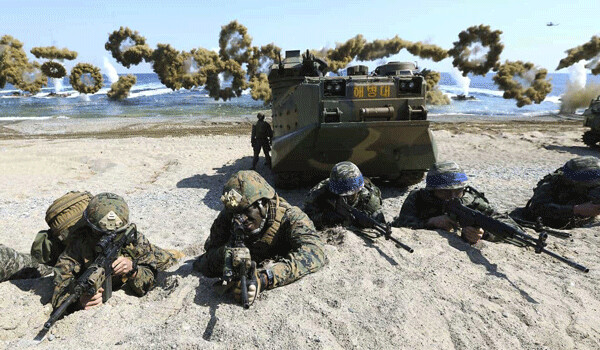News & Articles
Browse all content by date.

We know from the Clinton-era economic sanctions against Iraq, that the innocent suffered and died while the regime of Saddam Hussein remained unscathed. Half-a-million children starved to death, the blameless infants paying a price that Secretary of Hate Madeline Albright said was “worth it.”
Today’s sanctions against North Korea are inflicting the same sort of privations against blameless starving infants, children, their mothers and grandparents. Lee Eugene from South Korea’s Ministry of Unification said last September that the latest sanctions make North Korea’s malnourished children, nursing mothers and the elderly even more vulnerable. Foreign visitors to the North report that sanctions haven’t changed life for the elite, while ordinary people lack tools, running water, and needed medicines in clinics.
Malnutrition and even starving has been going on in North Korea for decades, yet no amount of suffering seems to move rich countries to end the hunger or even “allow in the ambulances.” Japan’s Prime Minister Shinzo Abe last September criticized a South Korean plan to donate a mere $8 million for food and medicines, complaining that relief efforts would weaken international pressure on the North to curtail its missile programs.
Experts have estimated that between 1995 and 1998, two-to-three million North Koreans died of starvation and famine-related illnesses, mainly children and the elderly. Out of a population of 22 million in 1998, this was one of the worst famines of the 20th century. But don’t shed a tear for the victims of avoidable mass starvation, because the North is a deadly threat of ferocious strength and cunning, so fearsome that Mark McDonald in the New York Times warned readers in January 2011 to be “concerned” that the North could use “further intrigues” and “nuclear capabilities to force food aid” from the US and South Korea. Those commies never fight fair, as Phil Oaks said.
Even at the height of the famine in 1997 when the World Food Program said it could see “no food in the country at all” and North Korea admitted the same, the United States was not going to be fooled into sending emergency rations. Rather, it urged other countries to do so. In August of 1999, when the World Food Program said people were still starving, US Rep. Tony Hall, D-Ohio, harshly criticized Japan by for cutting off food aid. The United States itself threatened to do the same if the North tested a missile. So embittered are relations between Japan and North Korea, that in 2002 when donations of food aid from other countries plummeted one Japanese charity sent a shipment of dog biscuits.
Today’s economic sanctions are targeted at North Korea’s energy supply, already chronically short of fuel and diesel oil, and hit impoverished segments of the population. Former UN coordinator in Pyongyang David Morton has reported that health and sanitation systems are damaged by energy shortages.
In July 2013, over one-quarter of the children of North Korea under the age of five were still suffering chronic malnourishment and the North’s infant mortality rates were “several times higher” than rates in South Korea, according to United Nations surveys. Two years earlier, in Sept. 2011, the World Food Program reported that one-third of all North Korean children under 5 were malnourished. That April, former President Jimmy Carter condemned the government of Barack Obama for refusing to send assistance, saying the deliberate withholding of food amounted to “a human rights violation.” You know a crime is underway when a former liberal US president criticizes a sitting liberal US president from his own party over human rights. The US war against the dangerous starving North Koreans was still underway in December 2011, when four US relief groups including Mercy Corps publicly charged that the US was playing politics with children’s lives.
In spite of the North’s long-standing need for a more diverse food supply, and the fact that two-thirds of all North Koreans were enduring chronic food shortages, South Korean government and private aide for the North dropped “more than 95 percent” between 2007 and 2012.
In Feb. 2012, the Obama White House was still using food as a weapon. US negotiator Glyn Davies gave the impression of holding up 240,000 tons of energy bars and grains contending that it could easily be transferred to the North Korean Army. Both the US and South Korean governments deny using malnutrition as a bargaining chip, but in Nov. 2011, S. Korean unification minister Yu Woo-ik said in Beijing that his bosses would not make a major shipment of rice unless North Korea apologized for shelling a South Korean island the previous November.
As if the population doesn’t suffer enough, August 5, 2012 saw a typhoon and a string of floods strike the North, killing hundreds, leaving 400 missing, and forcing 212,000 into homelessness. That summer, the price of rice doubled. By November 2013, the World Food Program was warning that mothers and children in 80 percent of North Korean households had insufficient amounts of vitamins, minerals, fats and proteins in their diets.
What a relief that the Pentagon held what it called a “table-top exercise” in February in Hawaii practicing how to attack the starving North Koreans. At least a bombing campaign would finally stop them tricking us into sending food aid.
| Tweet |

